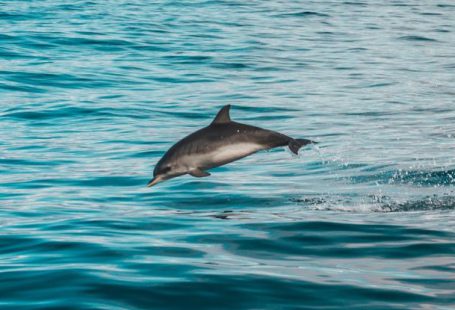Diving enthusiasts around the world are increasingly embracing eco-friendly practices to minimize their impact on the marine environment. Whether you are a seasoned diver or a beginner looking to explore the underwater world, incorporating sustainable habits into your diving routine can help protect fragile ecosystems and marine life. Here are some essential travel tips for eco-friendly diving that will allow you to enjoy the beauty of the ocean responsibly.
Choose Eco-Friendly Dive Operators
When planning your diving trip, opt for dive operators that prioritize sustainable practices. Look for operators that are committed to minimizing their environmental footprint, such as using eco-friendly cleaning products on their boats, supporting marine conservation initiatives, and following responsible diving guidelines. By choosing eco-conscious dive operators, you can support businesses that are dedicated to preserving the marine environment for future generations.
Respect Marine Life
One of the fundamental principles of eco-friendly diving is to respect marine life and their habitats. Avoid touching or disturbing marine animals, as this can disrupt their natural behavior and cause stress. Maintain a safe distance from coral reefs and other fragile marine ecosystems to prevent accidental damage. By observing marine life from a respectful distance, you can minimize your impact on delicate underwater habitats and promote the well-being of marine species.
Practice Proper Buoyancy Control
Mastering buoyancy control is essential for eco-friendly diving, as it allows you to move through the water with minimal disturbance to the marine environment. Proper buoyancy control helps you avoid accidental contact with coral reefs and prevents stirring up sediment that can harm marine life. Take the time to hone your buoyancy skills through practice and training, so you can glide effortlessly through the water while minimizing your impact on the underwater ecosystem.
Use Reef-Safe Sunscreen
Sunscreen is a vital part of protecting your skin while diving, but many conventional sunscreens contain harmful chemicals that can damage coral reefs and marine life. Opt for reef-safe sunscreen products that are free of oxybenzone and octinoxate, two common ingredients that have been linked to coral bleaching and coral reef decline. By choosing reef-safe sunscreen, you can enjoy sun protection without contributing to the degradation of fragile coral ecosystems.
Reduce Single-Use Plastics
Single-use plastics, such as water bottles, plastic bags, and straws, pose a significant threat to marine life and contribute to ocean pollution. Reduce your plastic waste while diving by using reusable water bottles, eco-friendly dive gear bags, and biodegradable alternatives to single-use plastics. Minimizing your use of disposable plastics not only helps protect marine animals from ingestion and entanglement but also reduces plastic pollution in the ocean.
Support Marine Conservation Efforts
Get involved in marine conservation initiatives during your diving trips to contribute to the protection of the underwater environment. Participate in beach cleanups, coral restoration projects, or marine life monitoring programs to actively support conservation efforts in the areas you visit. By volunteering your time and resources to marine conservation, you can make a positive impact on the health of ocean ecosystems and help preserve marine biodiversity for future generations.
Embrace Sustainable Dive Practices
Incorporate sustainable dive practices into your diving routine to minimize your environmental impact and promote ocean conservation. Respect local regulations and guidelines for diving, such as not feeding marine animals, anchoring on coral reefs, or collecting marine souvenirs. By following responsible diving practices, you can help protect marine ecosystems and contribute to the sustainability of the underwater environment.
Make a Difference Through Eco-Friendly Diving
By adopting eco-friendly diving habits and supporting sustainable dive operators, you can make a positive difference in protecting the marine environment. Take proactive steps to reduce your impact on the ocean, respect marine life and habitats, and support marine conservation efforts during your diving adventures. By embracing eco-friendly practices, you can enjoy the wonders of the underwater world while safeguarding its beauty for future generations to explore and appreciate.





